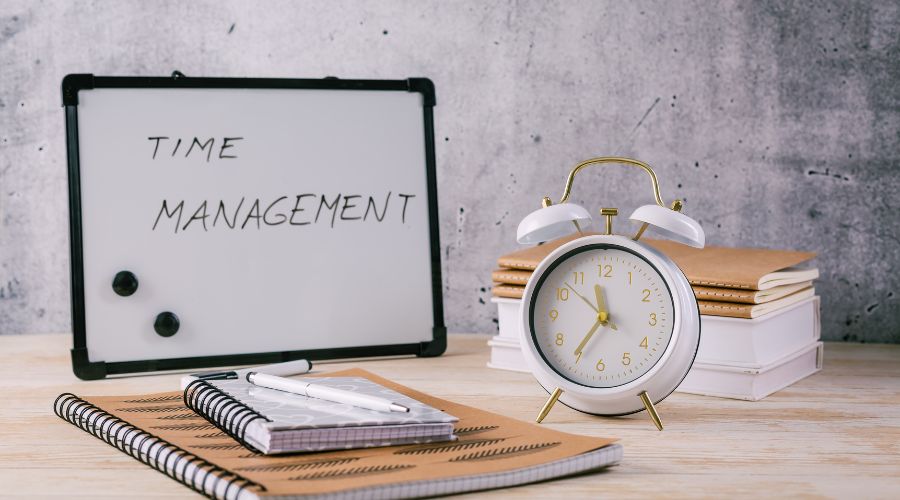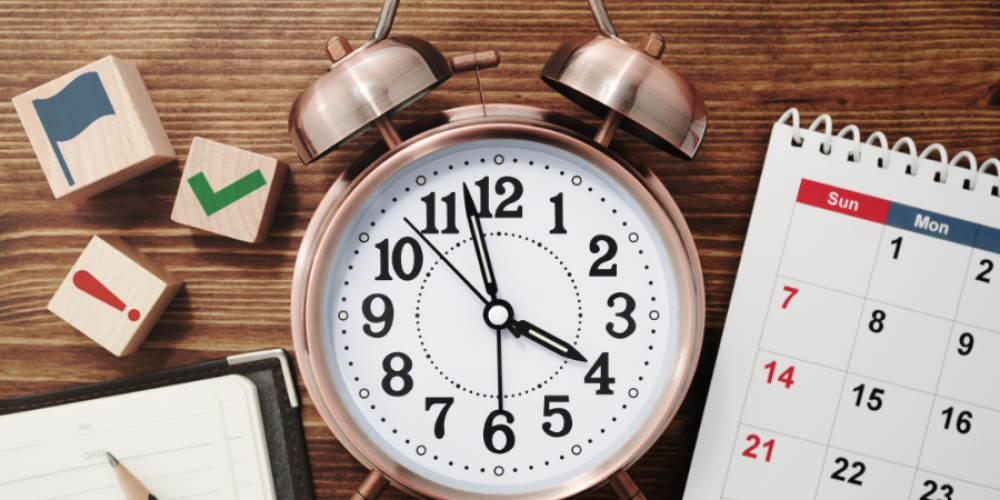Vanderkam draws on research and her own experience as a full-time professional and mother of 5 kids (yes, 5!). Here, she offers some ways to get the most out of your day
1. Track your time
“When people say they want to spend their time better, the first thing I always tell them is to figure out where the time is going now,” Vanderkam says. “Because if you don’t know where the time is going now, how do you know if you are changing the right thing?”
She suggests tracking how you spend every day from 5 am to 4:30 pm for an entire week. This will give you a more holistic view of your time than just looking at a random day.
Vanderkam has her clients create a spreadsheet with days of the week across the top and half-hour blocks along the left side. You can do this in Outlook or use the Time-Tracking Sheet on Vandkerkam’s website.
“Remember to check in every couple of hours and then think back on what you were doing,” she says. “A lot of times, time does get away from us. We often have no recollection whatsoever of 30-minute blocks.”
2. Ask yourself what you’d like to spend more time doing
Once you’ve tracked your time, Vanderkam encourages you to celebrate what you’re doing right in your weekly schedule rather than coming down on yourself for wasting time.
“Most people are not complete and total disasters, so you should be happy about whatever good routines you have,” she says.
Ask yourself what you’d like to spend more time doing. The more time you spend doing stuff that excites you, the less time you will have to do the stupid, time-wasting stuff like continually checking emails or doom-scrolling through ‘X.’
3. Schedule your following week on Fridays

Once you see where you’re spending time wisely and where you could cut down on wasted time, try to devise a realistic schedule that prioritizes the things you did best.
Vanderkam suggests scheduling the following week on Friday afternoon.
“Friday afternoon is when you’re unwilling to start anything new, but you might be willing to think about what future you should be doing,” she says. “By taking a few minutes to plan your upcoming week, you can turn what would be wasted time into something much more productive.”
Also, unlike Sunday nights, when most people plan for the week, you can set up meetings and contact people during work hours. It also lets you think about how you want to spend your weekend.
4. Give yourself a bedtime
Vanderkam has reviewed thousands of time logs and concludes that most people don’t get enough consistent sleep.
“It’s disorganized sleep,” she explains. “We stay up late one night, and then we are crashing the next night, and then we stay up late, and we’re crashing—the cycle repeats itself. It’s much better to get the same amount of sleep you need every night.”
Her solution: Figure out what time you need to wake up, and figure out how much sleep you need (usually 7 hours). Then, count back that number of hours, and that is your bedtime.
Having consistent sleep hours will mean that you won’t crash at your desk in the middle of a workday.

5. Tackle the toughest work first
People tend to want to get the small stuff out of the way before they dive into the more complicated activities. In modern office parlance, some refer to this as “clearing the decks” (an old naval term).
But this strategy is not productive. Explains Vanderkam, “There’s a lot of easy work that we have to do that doesn’t take a huge amount of brainpower, but it’s very rewarding in the sense that it is easily done.” An example might be sending out a bunch of calendar invitations. It feels good to scratch off your to-do list, but it doesn’t mean you’re being productive.
A better strategy, Vanderkam says, is getting the more challenging, more consequential stuff out of the way earlier in the day. This way, when you experience the inevitable dip in energy in mid-afternoon, you can use that time to get “some easy wins.” Like sending out calendar invites or returning emails.
6. Make shorter to-do lists
Many people make a long, comprehensive to-do list that they can’t possibly get done in the course of a day—or even a week.
Vanderkam advises making shorter to-do lists that are achievable.
“Consider it a contract with yourself,” she says. “If you make a daily to-do list, that means you are committing to do everything on that list by the end of the day.”
Another suggestion she makes is to create a “to-done” list alongside your traditional to-do list. Two reasons:
1. If you take a moment to reflect on your achievements, it’s likely that you won’t become fixated on the negative emotions associated with not fulfilling your initial goals.
2. It will give you a list of accomplishments you can forward to your manager or boss.
7. Schedule something you’ll look forward to
Researchers at Oxford University found that workers are 13% more productive when happy.
Vanderkam is not surprised. She believes “the ultimate self-care is being interested in your own life.” How can you hope to be more productive when everything in your week is doom and gloom?
For this reason, Vanderkam says, “When doing your Friday planning, make sure you have something in the upcoming week that you genuinely look forward to.”
This could be a professional or personal goal—as long as it makes you feel more energized and excited.


